Day 1 Christmas Countdown Devotional: when the Lord of heaven’s armies came
 When we see the apparent helplessness of the baby in the manger, it’s hard to imagine what he left behind to make his journey to his Bethlehem birthplace. There is a hint, however, in the titles with which the angels introduce him. The angels said,
When we see the apparent helplessness of the baby in the manger, it’s hard to imagine what he left behind to make his journey to his Bethlehem birthplace. There is a hint, however, in the titles with which the angels introduce him. The angels said,
For unto you is born this day in the city of David a Savior, who is Christ the Lord.
While this is the first time in theChristmas scene that the word “Lord” has been applied to the Christ child, it is not its first use in the Bible. The word “Lord” occurs nearly 8,000 times in the Bible. It is a word with a rich heritage. In our contemporary, free-market society, it’s hard for us to understand the master-servant relationship. At times, the word “Lord” can even sound archaic. Herbert Lockyer describes the word as “a master who commands willing service.” When applied to Jesus, reflect on the fact that prior to taking on humanity he was: the Lord of glory (1 Cor. 2:8), Lord of lords (1 Tim. 6:15), Lord of all (Rom. 10:12), and Lord of heaven’s armies (Jer. 33:11; Rev. 5:11).
Its that last title that has most captured my imagination this Christmas season. The title is used over 260 times in the Old Testament–often in the context of judgment. While we do not know the scope or size of “heaven’s armies,” there are a few hints in the Scripture.
When the Syrian army surrounded the city of Elisha the prophet, he said to his fearful servant,
“Do not be afraid, for those who are with us are more than those who are with them.” Then Elisha prayed and said, “O LORD, please open his eyes that he may see.” So the LORD opened the eyes of the young man, and he saw, and behold, the mountain was full of horses and chariots of fire all around Elisha (2 Kings 6:16-17).
In Revelation we read,
Then I looked and heard the voice of many angels, numbering thousands upon thousands, and ten thousand times ten thousand. They encircled the throne and the living creatures and the elders. In a loud voice they sang: “Worthy is the Lamb, who was slain, to receive power and wealth and wisdom and strength and honor and glory and praise!” (Revelation 5:11-12, NIV).
Ten thousand times ten thousand totals 100 million. While I wouldn’t infer this to be a definitive number, it’s clear that the Lord of heaven’s armies had unlimited resources at his disposal. To put that number in perspective, the largest armies the earth has ever assembled are:
- 3 million (USA in 1970)
- 4.4 million (USSR in 1970)
- 4.8 million (China in 1980)
Add all of them together and you only come up with 12.2 million; that’s a small army compared to the 100 million that potentially make up heaven’s hosts.
It’s hard to imagine that when the world needed a Savior the Lord of heaven’s armies was the one who volunteered. He did not consider equality with God a thing to be grasped, but he emptied himself and took on the form of a servant. It’s a thought that gives new meaning to “For unto you is born this day in the city of David a Savior, who is Christ the Lord.”
PHIL MOSER is the author of the Biblical Strategies series and the developer of 4M Training: a 13-week small group study for men. All of his resources can be found on amazon or at biblicalstrategies.com.
If you’re looking for a resource for your men’s group, consider 4M Training. Mature, master, minister, and mentor in 13 weeks. Click on image below to learn more.

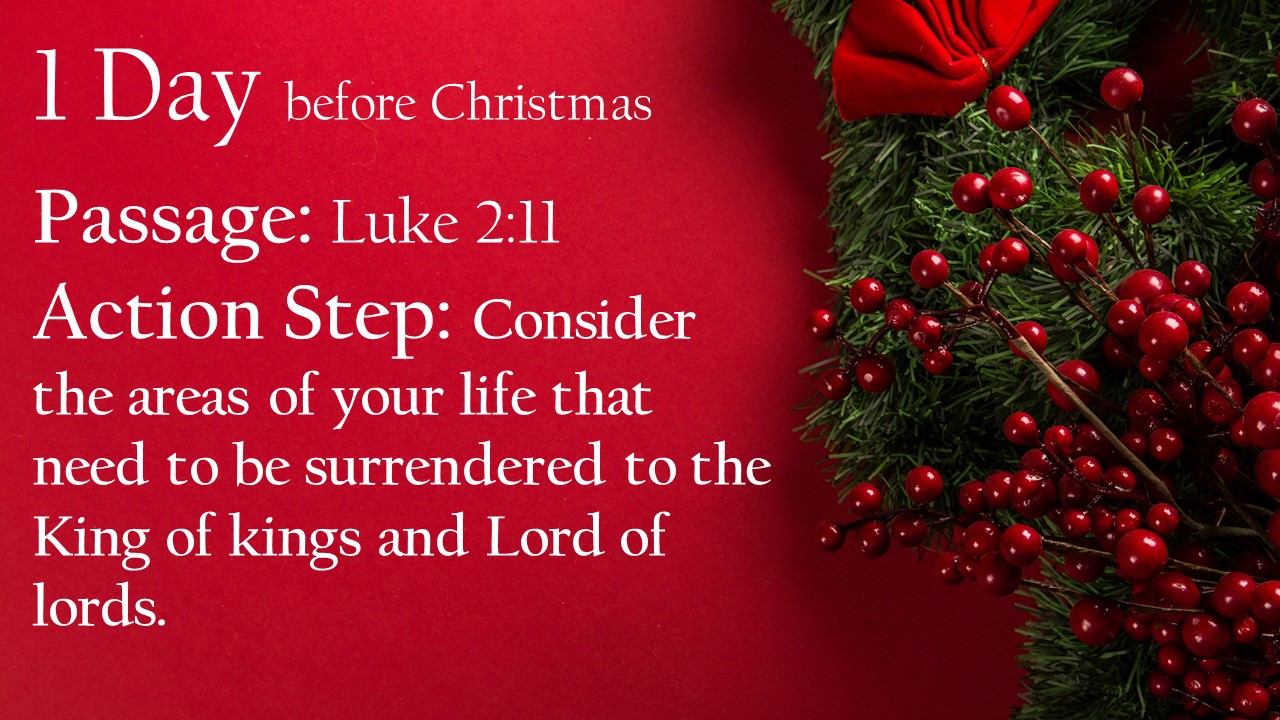


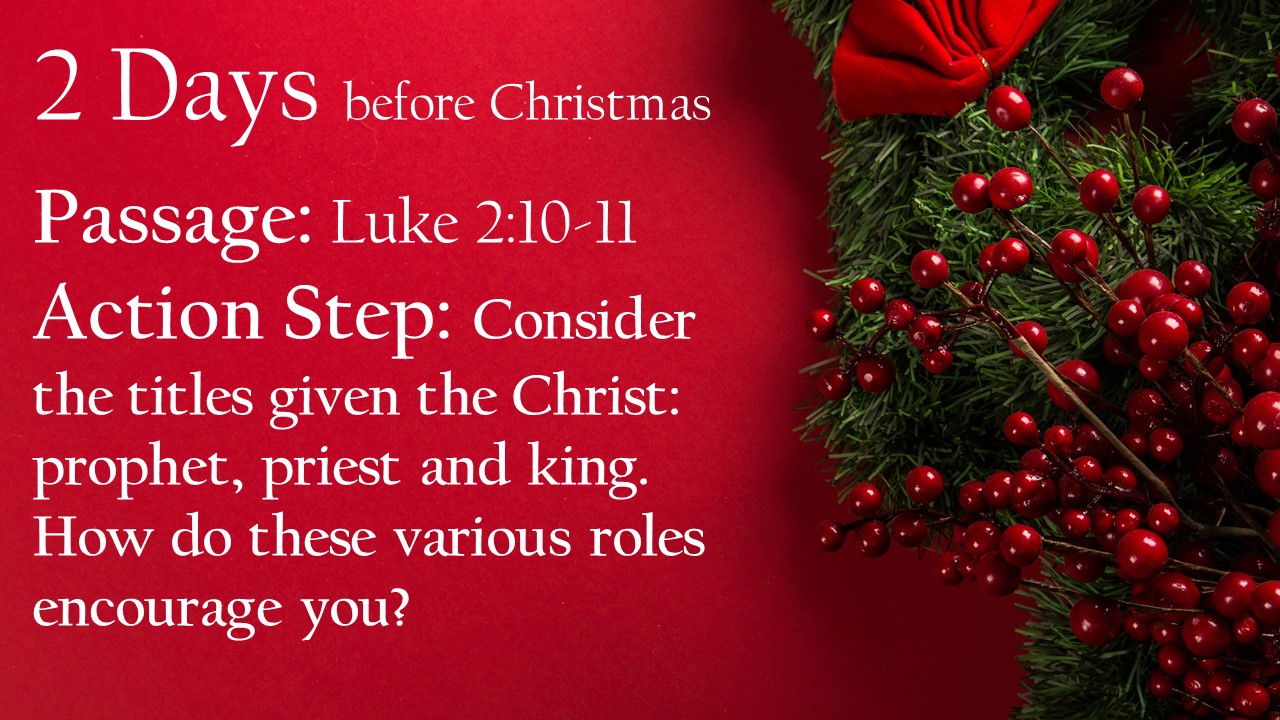
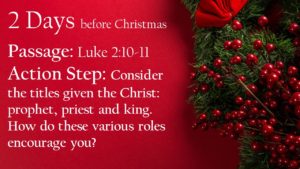 When the angel brought the good news to the shepherds of Jesus’ birth, he introduced Jesus with three titles. So often we’re drawn to the “baby in the manger” part, that we miss the designations. The angel said,
When the angel brought the good news to the shepherds of Jesus’ birth, he introduced Jesus with three titles. So often we’re drawn to the “baby in the manger” part, that we miss the designations. The angel said,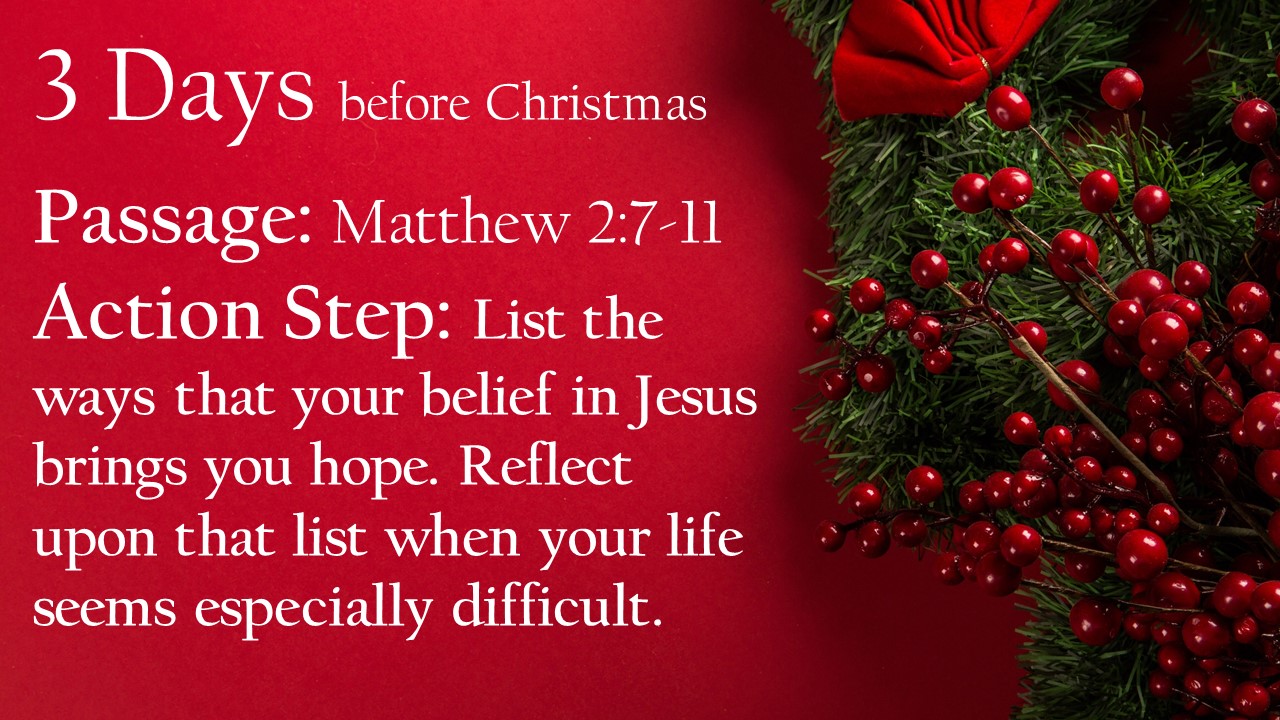
 From time to time, when I wake up in the morning, I find myself wondering what tragedy the news will be reporting on this day. Lately, that has happened more often than not. It is hard to trust our leaders—both nationally and internationally. Headlines of war and violence stream through our newsfeed. It’s easy to let the weight of the world press out any remaining remnant of joy. In our present context, the dialogue between the wisemen and King Herod seems especially relevant.
From time to time, when I wake up in the morning, I find myself wondering what tragedy the news will be reporting on this day. Lately, that has happened more often than not. It is hard to trust our leaders—both nationally and internationally. Headlines of war and violence stream through our newsfeed. It’s easy to let the weight of the world press out any remaining remnant of joy. In our present context, the dialogue between the wisemen and King Herod seems especially relevant.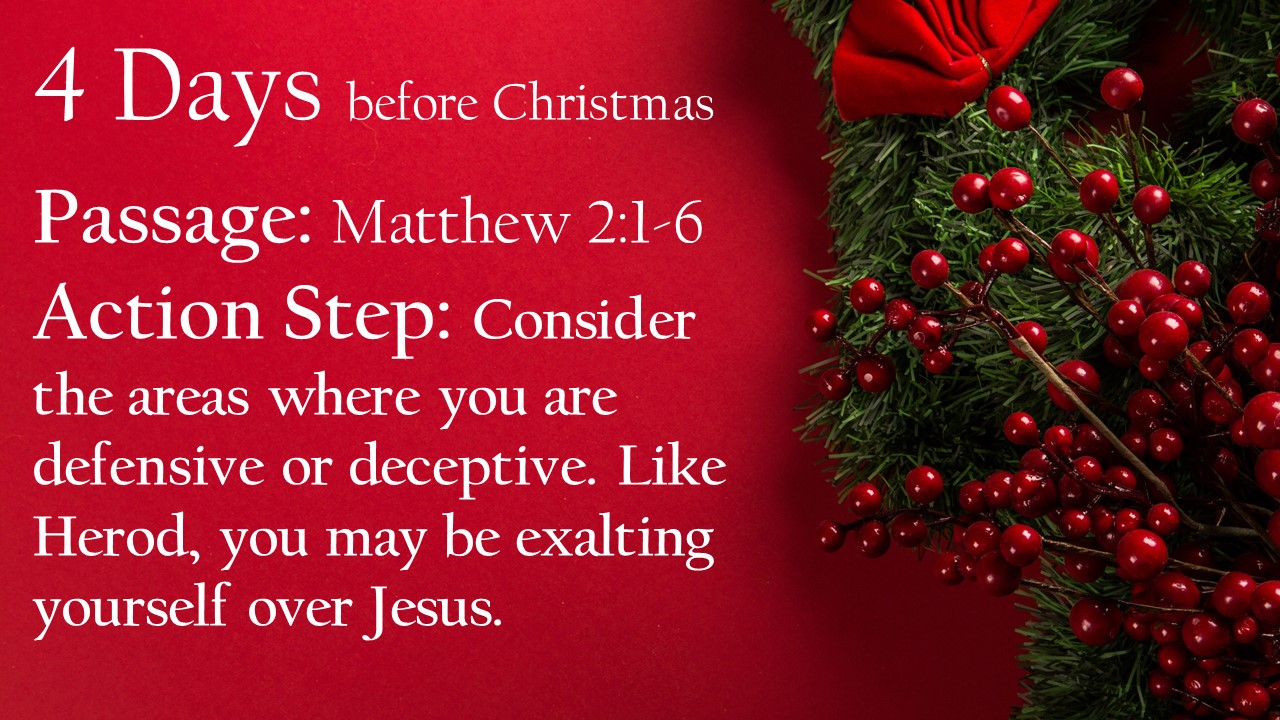
 While it is unlikely that the wise men visited Jesus at the manger scene, their appearance is typically associated with his birth. The text only tells us that they came from the East. Many Bible students connect these magi with Daniel, the prophet, who resided in Babylon some 400 years earlier. This would mean their journey to see Jesus could have been over 900 miles. Though they certainly could have traveled more quickly than the Old Testament leader Ezra and his entourage, it is noteworthy that it took him about four months to move from “the east” to Jerusalem. Here’s the point: as seekers of the King, they made a significant effort to find Jesus.
While it is unlikely that the wise men visited Jesus at the manger scene, their appearance is typically associated with his birth. The text only tells us that they came from the East. Many Bible students connect these magi with Daniel, the prophet, who resided in Babylon some 400 years earlier. This would mean their journey to see Jesus could have been over 900 miles. Though they certainly could have traveled more quickly than the Old Testament leader Ezra and his entourage, it is noteworthy that it took him about four months to move from “the east” to Jerusalem. Here’s the point: as seekers of the King, they made a significant effort to find Jesus.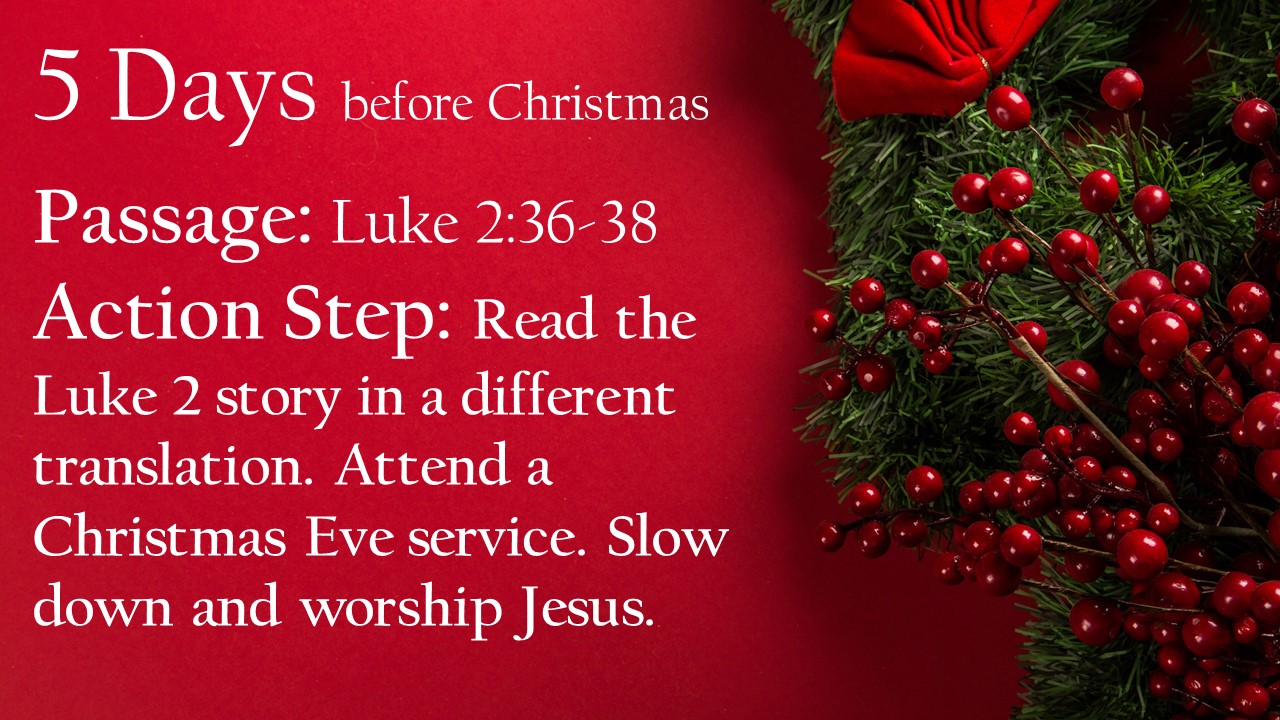
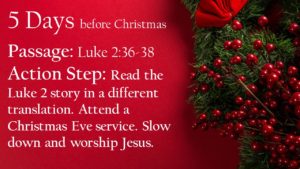 Perhaps your Christmastime is full of family traditions. Over the years our family has developed our share. Decorating starts the day after Thanksgiving. Then comes the annual trip to Longwood Gardens for their light show. We sing Christmas carols for some local nursing home residents and widows. We open the gifts in the stocking on Christmas Eve. We watch a Christmas movie as a family (some have been pretty painful). We take an annual Christmas picture and send it to our friends and family.
Perhaps your Christmastime is full of family traditions. Over the years our family has developed our share. Decorating starts the day after Thanksgiving. Then comes the annual trip to Longwood Gardens for their light show. We sing Christmas carols for some local nursing home residents and widows. We open the gifts in the stocking on Christmas Eve. We watch a Christmas movie as a family (some have been pretty painful). We take an annual Christmas picture and send it to our friends and family.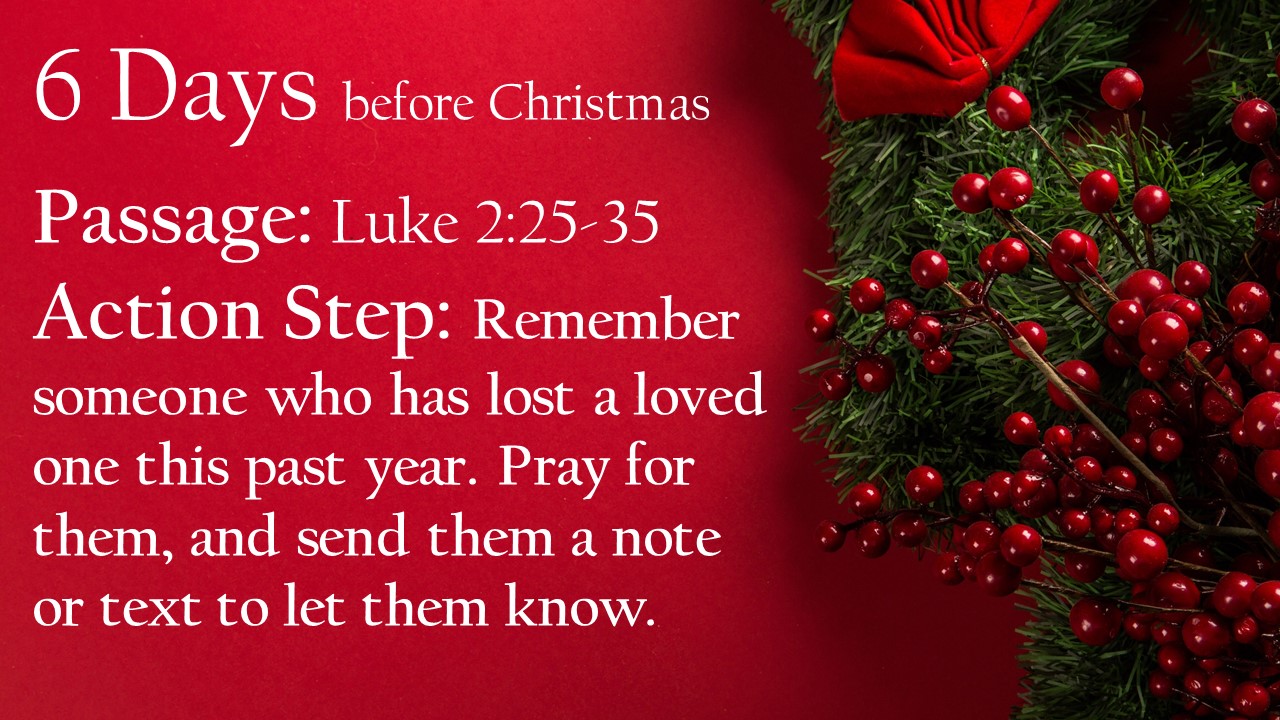
 Christmas time for children is a time of waiting. It forces them to practice, painfully at times, delayed gratification. The gifts are purchased, wrapped, and under the tree. Then they wait, and wait, and wait. We all know stories of kids (or spouses) who couldn’t wait, snuck a peak, rewrapped the gift and pretended to be surprised on Christmas Day. As I’ve grown older, I’ve come to realize that it isn’t only Christmas Day that teaches us the practice of waiting. Life does. Wisdom, love, and relationships all take time to develop. In the meantime, we wait.
Christmas time for children is a time of waiting. It forces them to practice, painfully at times, delayed gratification. The gifts are purchased, wrapped, and under the tree. Then they wait, and wait, and wait. We all know stories of kids (or spouses) who couldn’t wait, snuck a peak, rewrapped the gift and pretended to be surprised on Christmas Day. As I’ve grown older, I’ve come to realize that it isn’t only Christmas Day that teaches us the practice of waiting. Life does. Wisdom, love, and relationships all take time to develop. In the meantime, we wait.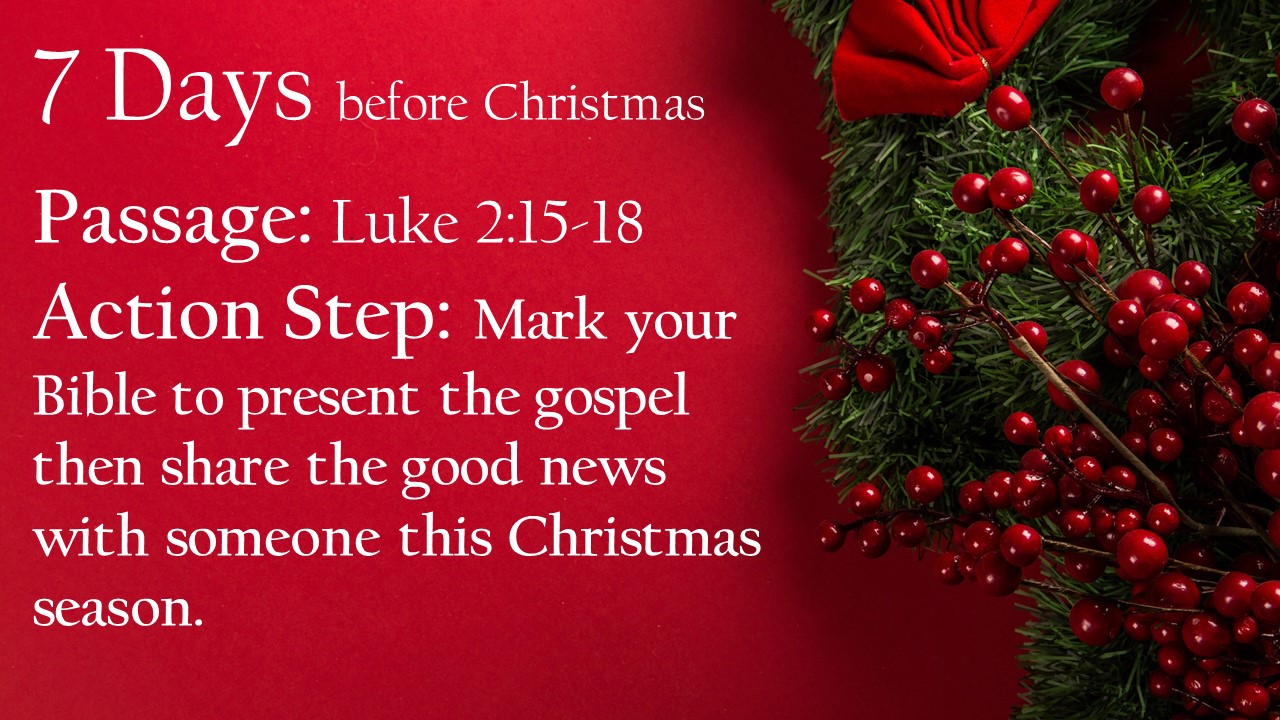
 The shepherds were the first visitors to the manger scene. They were filled with such joy and wonder that they naturally became the first evangelists as well. The angels told the shepherds where to find Jesus; the shepherds checked it out for themselves and determined to tell others. In the text, notice the focus on the word “known.”
The shepherds were the first visitors to the manger scene. They were filled with such joy and wonder that they naturally became the first evangelists as well. The angels told the shepherds where to find Jesus; the shepherds checked it out for themselves and determined to tell others. In the text, notice the focus on the word “known.”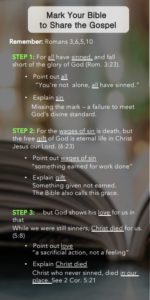


 Did you ever wonder if God made decisions that his angel-messengers didn’t understand? Like the decision to send his only son as a gift to humanity when the best accommodations that mankind would provide would be a feeding trough for animals? Yet immediately after detailing his birthplace to the shepherds, the angels erupt in praise to God.
Did you ever wonder if God made decisions that his angel-messengers didn’t understand? Like the decision to send his only son as a gift to humanity when the best accommodations that mankind would provide would be a feeding trough for animals? Yet immediately after detailing his birthplace to the shepherds, the angels erupt in praise to God.
 There are over 100 leaders in history who added to their name two words: the great. Here are a few you might recognize:
There are over 100 leaders in history who added to their name two words: the great. Here are a few you might recognize: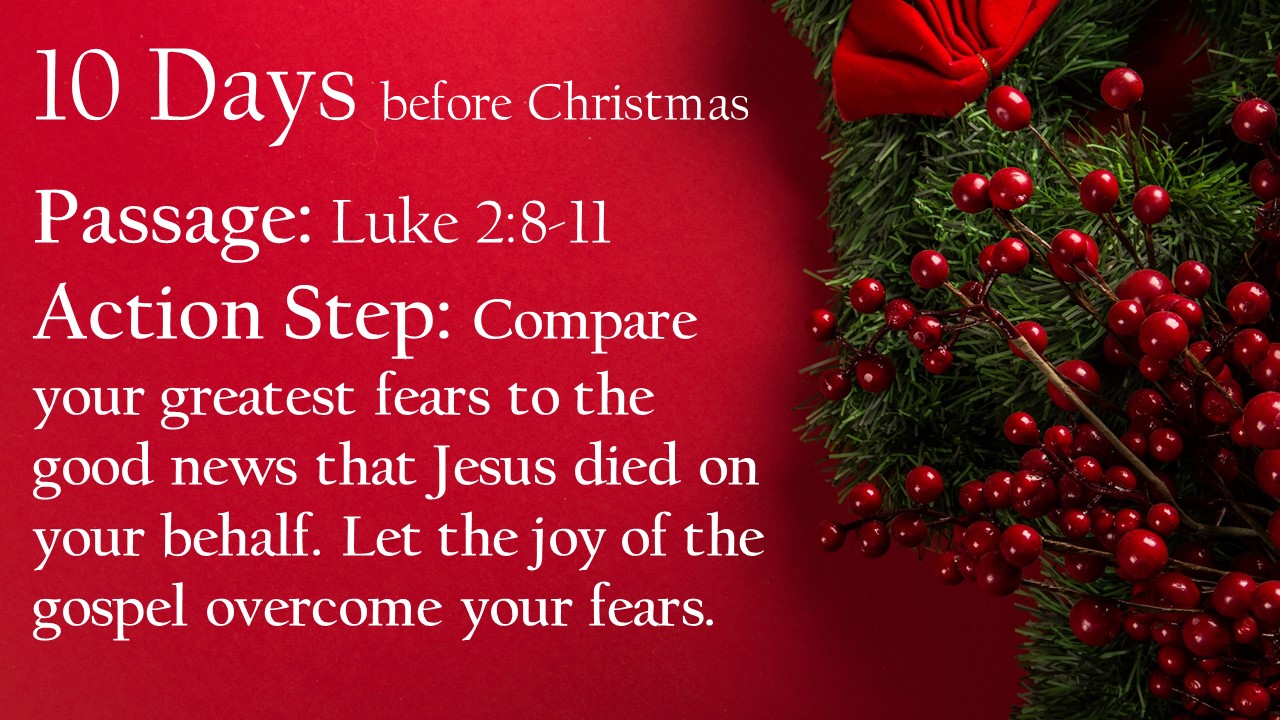
 Have you ever been afraid? I mean really afraid. According to the Chapman Survey, the top 10 fears we face are: (1) public speaking, (2) heights, (3) bugs and snakes, (4) needles, (5) claustrophobia, (5) flying, (6) strangers, (7) zombies, (8) darkness, (9) clowns, (10) ghosts.
Have you ever been afraid? I mean really afraid. According to the Chapman Survey, the top 10 fears we face are: (1) public speaking, (2) heights, (3) bugs and snakes, (4) needles, (5) claustrophobia, (5) flying, (6) strangers, (7) zombies, (8) darkness, (9) clowns, (10) ghosts.